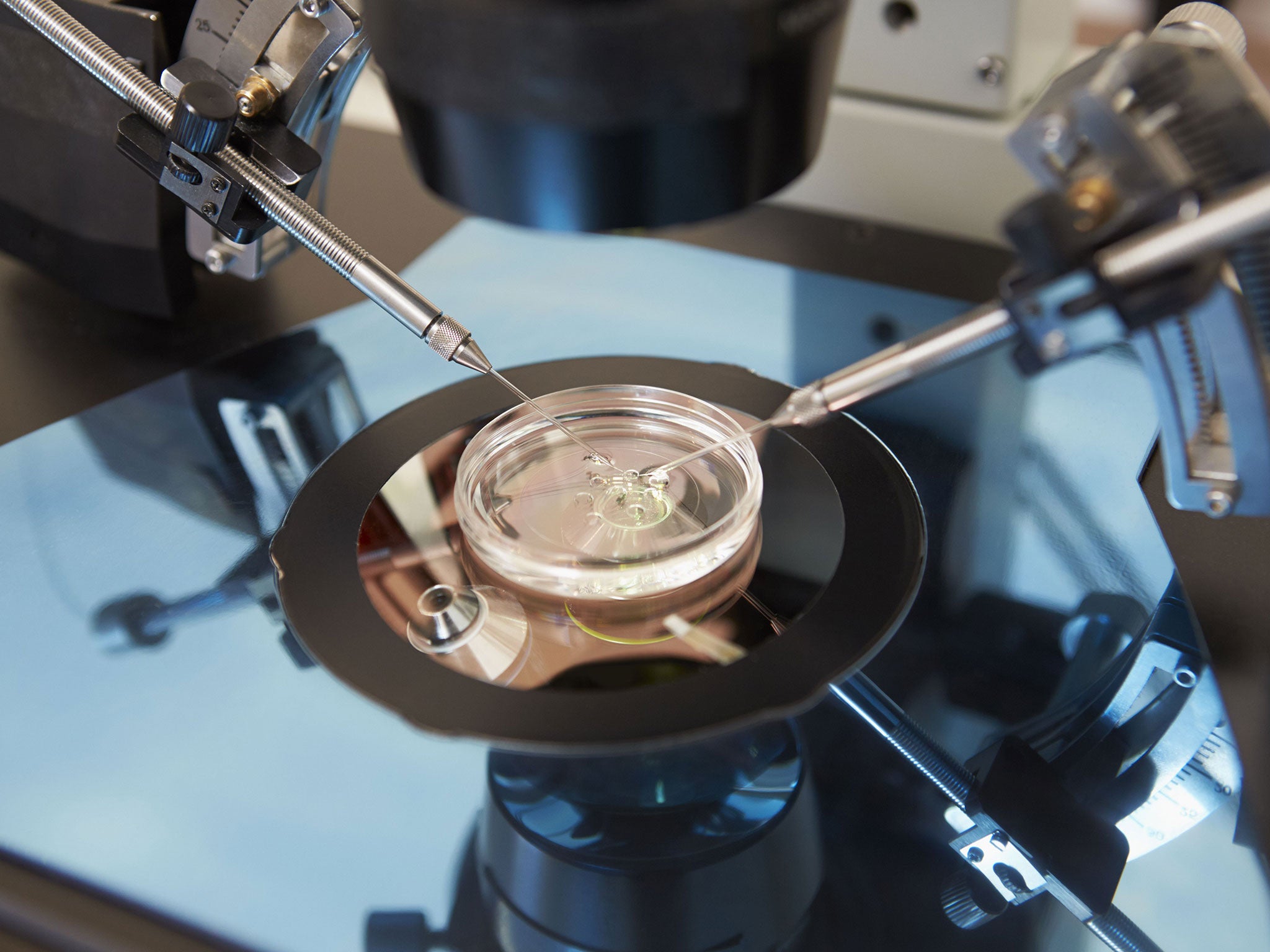IVF use could be storing up health problems, biologist warns
'The jury is out though as to whether those children are going to be healthy 80 years down the line'

Your support helps us to tell the story
From reproductive rights to climate change to Big Tech, The Independent is on the ground when the story is developing. Whether it's investigating the financials of Elon Musk's pro-Trump PAC or producing our latest documentary, 'The A Word', which shines a light on the American women fighting for reproductive rights, we know how important it is to parse out the facts from the messaging.
At such a critical moment in US history, we need reporters on the ground. Your donation allows us to keep sending journalists to speak to both sides of the story.
The Independent is trusted by Americans across the entire political spectrum. And unlike many other quality news outlets, we choose not to lock Americans out of our reporting and analysis with paywalls. We believe quality journalism should be available to everyone, paid for by those who can afford it.
Your support makes all the difference.The growing number of couples who conceive though IVF technology is a mass “evolutionary experiment” that could be storing up health problems for future generations, an evolutionary biologist has warned.
Techniques such as intra-cytoplasmic sperm injection (ICSI), where individual sperm are injected directly into an unfertilised egg, are bypassing nature’s way of eliminating defective sperm, said Pascal Gagneux of the University of California, San Diego. “The choice of the sperm is made by a technician, not by the female physiology,” Dr Gagneux told the American Association for the Advancement of Science in Washington. “The concern is that by by-passing female choice at the level of sperm selection, we might produce embryos that contain risk factors that we would otherwise not have.”
He added: “You can get healthy children using that technique. The jury is out though as to whether those children are going to be healthy 80 years down the line.”
Studies of IVF mice show that they suffer from long-term disorders if they are allowed to age. Females develop a pre-diabetic condition called metabolic syndrome, while male animals suffer hormonal problems.
In another study, where 100 IVF and naturally conceived children as young as six were taken on a trip up a Swiss mountain, the IVF children suffered from altitude problems more than other children. About five million children have been born through IVF techniques since the first test-tube baby, Louise Brown, was born in 1978. The technology has become increasingly intrusive, with sperm often injected directly into an unfertilised egg by laboratory technicians
Artificial fertilisation in a laboratory dish either involves the selection of one sperm for ICSI, or the bathing of an unfertilised egg in a medium containing billions of sperm – which is equally unnatural, Dr Gagneux said. “We make several embryos and we wait for them, observe them, for up to five days. During that time these embryos are in a completely artificial medium in a plastic dish,” he said.
The big worry is that, at this key stage of the early development process, the embryo undergoes genetic imprinting by being bathed in an artificial culture, he told the meeting.
“The big question for me is could we learn how to avoid potentially disastrous things that we are doing to these embryos because we don’t know everything yet,” he said. It is possible that IVF babies will have shorter lifespans or themselves have children who will inherit fertility problems, he added.
“It could also be introducing some very interesting costs in terms of if metabolic syndrome, which would be one of the potential consequences of starting an embryo out in ‘rocket fuel’, some minestrone mixture that lab people have developed. What if that re-sets imprinting in a sense that would then come at a metabolic disorder cost late in life?”
Join our commenting forum
Join thought-provoking conversations, follow other Independent readers and see their replies
Comments